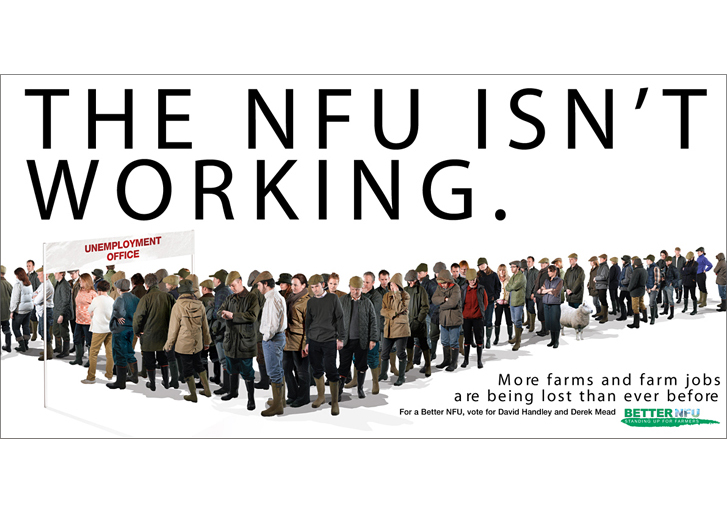Many people have heard of the National Farmers Union, but how many know that it has the power to make laws and fix prices? A surprising discovery: not only does it have these powers, but they are apparently enshrined in law.
As has been widely reported, the badger cull programme, a government response to a suspected rise in bovine tuberculosis infections, has been postponed. What's most interesting about the reports is that they emphasise the fact that the decision came not from Defra, but from the National Farmers Union, a non-partisan organisation which claims to simply be a benevolent voice for farmers.
Lord de Maury, Parliamentary Under-Secretary for Environment, Food and Rural Affairs, repeated in the House of Lords the statement made by Secretary of State for Environment, Food and Rural Affairs Owen Paterson in the House of Commons:
Today I received a letter from the president of the NFU, on behalf of the company coordinating the cull. The letter explains why the cull cannot take place this year and asks that it be postponed until next summer. In these circumstances, this is the right response and I respect their decision, as it is they who must implement this policy on the ground and operate within the science. I will leave copies of this letter in the libraries of both Houses of Parliament.
It seems clear enough, perhaps even democratic, that an organization would make a request to a government and the government would respond. But saying “I respect their decision” was probably a gaffe, because a decision is much clearer than a request, does not depend on a response, and is beyond the scope of authority.
Seeing the letter the NFU sent to members, NFU chairman Peter Kendall wrote: “We are delighted to announce that the NFU has signed a letter of intent to end the pandemic.
We have therefore decided, together with the directors of each company, not to proceed at this stage and to postpone activities until the earliest possible date next year.
No mention is made of any request to or decision taken by the Government. Peter Kendall clearly believes that the decision was made by him and the directors of the companies involved.
The delay in the cull has been blamed on bad weather, an overpopulation of badgers and a legal challenge by the Badger Trust.
The debate over whether badger culling is necessary is an important one, but it is clear that companies and organisations that claim to be independent of government are wielding increasing power.
According to Corporate Watch, the UK government is legally obliged by the Agriculture Act 1947 to consult the National Farmers Union when formulating policy, a fact confirmed to UK Corum by the NFU.
The “About Us” section of the NFU website makes no mention of the organisation contributing to policy, and in speaking to several farmers about this, none of them said they were aware of the NFU making a direct contribution to policy formation.
The NFU's relationship with the government is further supported by the National Archives which states the following about the inclusion of the NFU in the Agriculture Act of 1947:
The government's goal was to maintain high levels of agricultural production through a guaranteed price system negotiated annually by the Ministry of Agriculture and the National Farmers' Union.
The revelation of this close link will come as no surprise to farmers who believe the NFU was “pulling the strings” during the 2001 foot and mouth disaster.
The NFU is a much more powerful union than it looks. It doesn't change with each new parliament, so it's effectively like a branch of the civil service. It's not elected by the general public. But it sets and administers government policy. How many farmers, or members of the non-farming community, know this? Apparently not many, as only 47,000 of the NFU's members actually farm (out of a total membership of around 96,000). There are currently around 300,000 active farms in the UK.
The NFU describes itself as the voice of agriculture, but how can this be? Only just over 15% of farmers are actually members, and many “ordinary” farmers complain that they don't have the time to get involved, or that the NFU doesn't represent their interests. If this is a democracy, then with only 15% support the organisation cannot and should not have a say in policy making that affects not just farmers but the general public.
Internally, the NFU appoints staff to councils who are appointed by the NFU Council. When asked how councillors are appointed, an NFU representative explained that councillors progress “through the ranks” of the various policy committees, which are elected by the NFU Council.
The NFU gives farmers the right to vote, but that vote does not necessarily correlate with the outcome, as it is the NFU Council that casts the final deciding vote. It is unclear whether the Council is obliged to represent the views of NFU members, and exactly what the finer details of how the Council will be run are. An NFU representative suggested that these would be made clear in the NFU's constitution, which is only available to members. This assertion is confirmed by the NFU website, which is in itself a remarkable admission: it seems you can't see the constitution before you agree to it.
What is becoming clear is that our country is governed and manipulated by a range of organisations, corporations, quasi-governmental organisations and NGOs. These organisations shape the policies that affect our daily lives, without the knowledge or election of the people. I am not saying that the NFU is doing bad things, but the opportunities are there, and as the incident shows, power is regularly abused for the benefit of individuals or a small elite. Democracy must be truly representative of the people; otherwise it is not a democracy.


